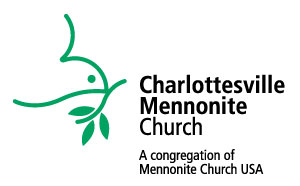The popular Irish Catholic comedian Stephen Colbert often sets up frames of understanding as a part of his humor. He frames a situation and invites folks to look through the frame with new eyes as he smiles at the implications he does not name...and we laugh.
The triumphal entry of Jesus into Jerusalem sets up a similar frame where, if we have eyes to see, we can hold the humorous and tragic tension of that event as naming the power of God to transform.
The video "Palm Sunday" by Marcus Borg describes the two triumphal entries that happened on Palm Sunday:
One procession up from the western coast town of Caesarea with a reinforcement of Roman troops for the Passover (read Jewish liberation from Egypt ceremony) in Jerusalem to keep the peace of the empire’s interests (read liberation not welcome).
And, the other from the east with entry of Jesus followed by crowds and children (read another kind of liberation) with a Messiah on a donkey! The vivid contrast of these processions could have been perceived by persons in the first century as a comic contrast with a tragic result:
Marcus Borg: Palm Sunday
http://bcove.me/hepw91sr (not responsible for advertisement before video)
I referred to the tension of these two different entries in my sermon “Nazareth Jesus and the Temple of Doom”
http://www.pvmcsermons.com/2011/09/roy-hange-nazareth-jesus-and-temple-of.html
A part of this sermon focuses on the post Pentecost encounter between the disciple Peter (Acts 10) with the Roman centurion from Caesarea who most probably led, or was a part of, that procession from the west toward Jerusalem on Palm Sunday. Their reconciling encounter completed through "good news" the tension that was set up in the gospel of Luke as described by Borg.
Peter then says what the crowds could not see on Palm Sunday: I truly understand that God shows no partiality, but in every nation those who fear God and do what is right are acceptable to him. (Acts 10:34-35)
These links follow on our church’s informal sermon theme from last year of how most readings of scripture in the early centuries would have included a Stephen Colbert smile…at the implications of what was not said but meant to be seen in the original context.
In reading scripture we often take a literal reading of the "window frames" and miss the window into that culture’s challenges that the frame is highlighting. When we see the deeper meaning we can see the power of the Word in our own time also.
Which Palm Sunday will we remember? One, aren’t those children cute waving their palm branches? Or two, how many children have the empires of this world sacrificed this year by not following the way of the Lord Jesus?
I think this is why Jesus wept over Jerusalem before entering it “Oh Jerusalem would that you knew what made for peace.” (Luke 19:41ff.) The one who comes in the name and way of the Lord brings blessings of peace we do not expect.
Stephen Colbert could also have wept over a reading about Palm Sunday 33 AD as occupation and exile were his family's story. Yet, he names how the pain of remembering what the British Empire did to his Irish ancestors before they were forced to emigrate is turned into laughter in this video link while naming that his wife’s ancestors got land taken from his family by the British Empire:
http://www.pbs.org/wnet/facesofamerica/profiles/stephen-colbert/11/
I can imagine the disciple Peter and the centurion Cornelius sharing a grace filled laugh as they reflected on what brought them to the meal that day in Acts 10. Cornelius could have had Peter killed or imprisoned if Peter had not denied Jesus. Peter would have readily cut off the ear of Cornelius...or more. The work of the Spirit brought them together eventually in transforming reconciliation.
Waiting in hope for these grace filled eventualities is why peacemakers are called blessed. They do not react to one tragedy by creating another violent tragedy.
They do so standing in the River of Life that flows from the throne of God. That same river that flowed through the cross of Jesus Christ "breaking down dividing walls of hostility." (Ephesians 2).
So, we are called in faith to hold this foolish hope. The alternatives are not much better.
by Roy Hange
